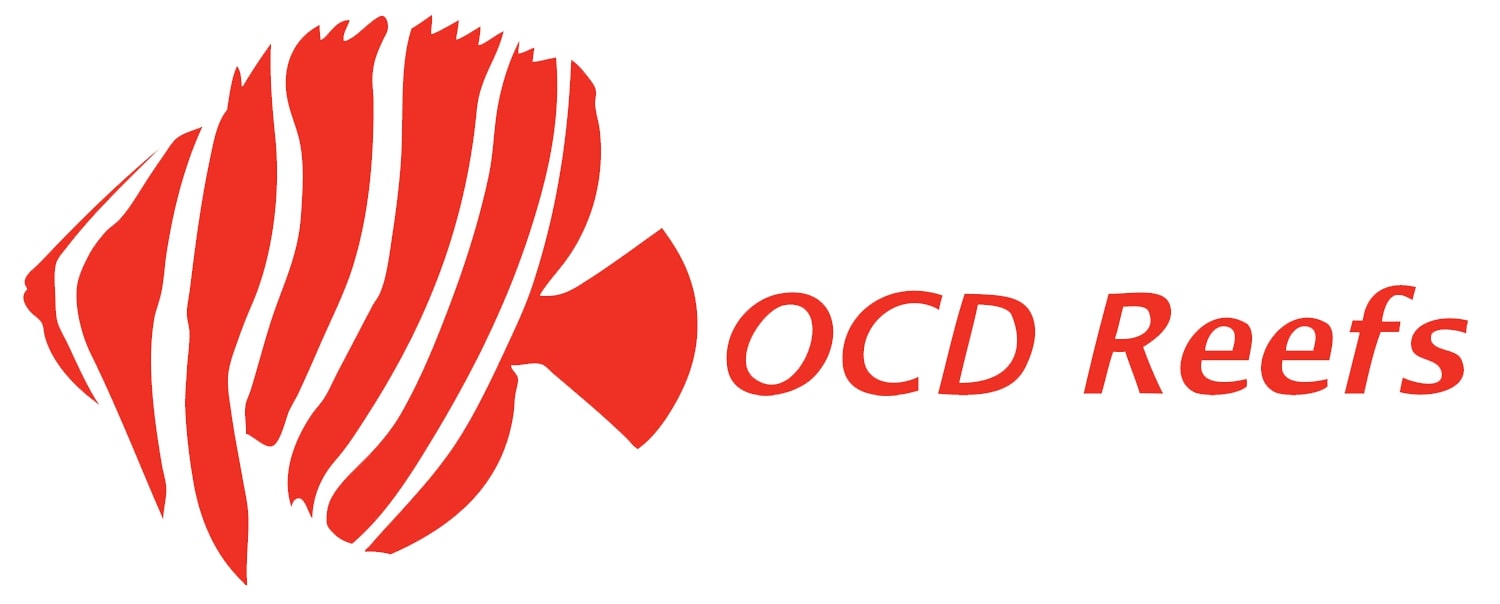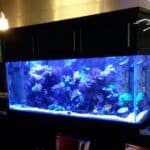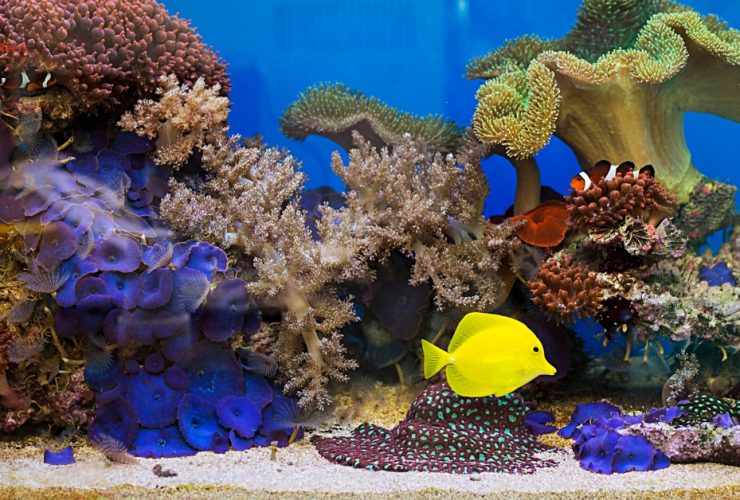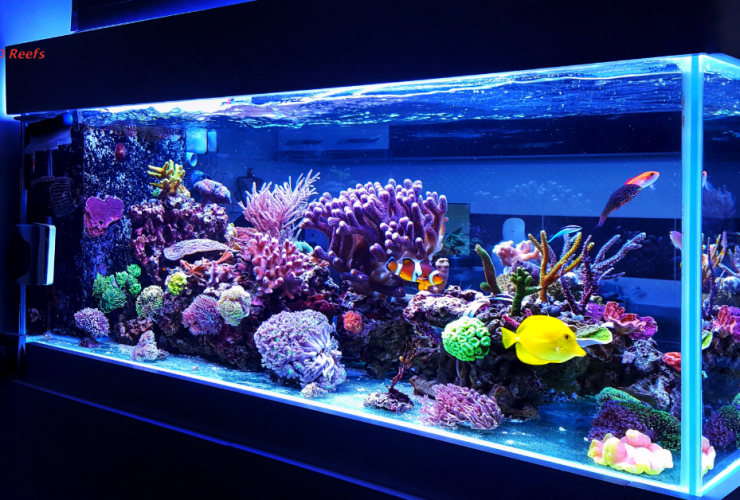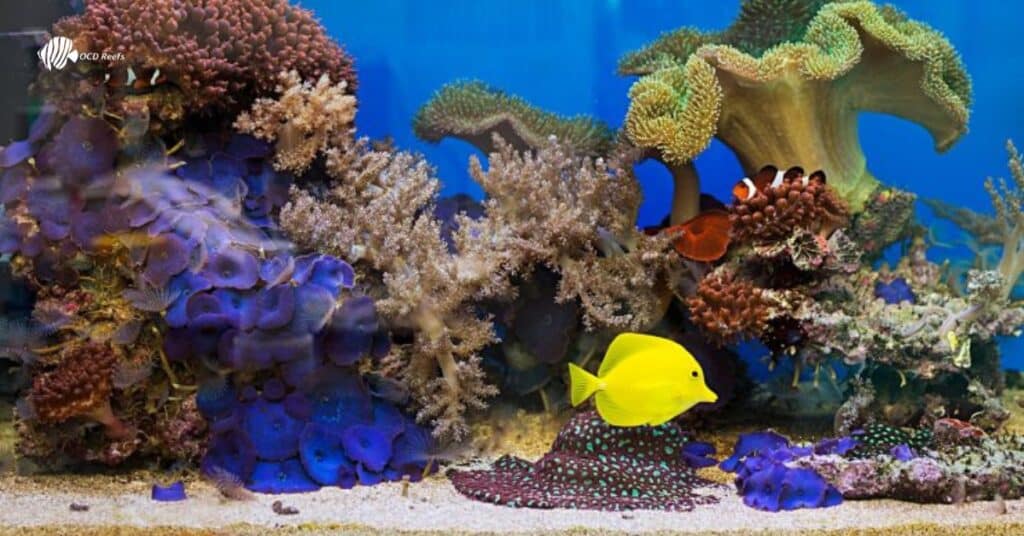
Why This Question Matters for Every Saltwater Hobbyist
Setting up a reef tank is exciting, but here’s the problem: many first-time reef keepers wonder if they can skip the hassle and just fill their tank with tap water. It feels convenient, it’s cheap, and it’s right there from the faucet. But the truth is, using untreated tap water can set you up for algae outbreaks, stressed corals, and endless frustration.
If you’re in Salt Lake City or anywhere trying to build a thriving saltwater system, this guide will help you understand the risks of tap water, safer alternatives, and exactly how to set your reef up for success.
Can You Use Tap Water in a Saltwater Tank?
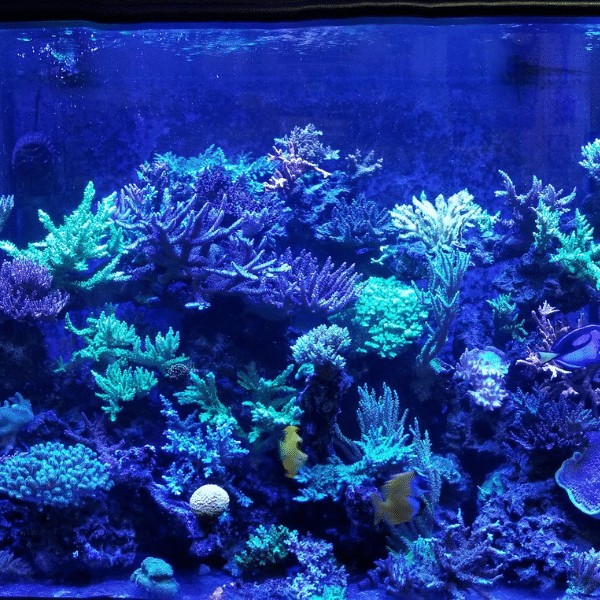
The quick answer: you shouldn’t.
Tap water might seem harmless, but it often carries chlorine, chloramines, phosphates, nitrates, silicates, and even heavy metals. All of these can fuel algae blooms, stress out your fish, and eventually kill sensitive corals and inverts.
Some hobbyists try to use conditioners to “fix” tap water. While dechlorinators remove chlorine and neutralize some contaminants, they won’t remove phosphates or silicates, which are the main culprits behind algae problems.
If your tank is fish-only, you might get away with conditioned tap water for a while. But if you’re building a reef with coral and invertebrates, tap water will almost always cause problems down the line.
Why Tap Water is Risky for Reefs
Let’s break it down by the biggest issues we see when hobbyists use tap water:
- Chlorine and Chloramine: Harmful to fish gills and invertebrates.
- Phosphates and Nitrates: Drive uncontrollable algae blooms.
- Heavy Metals: Copper, lead, and zinc can leach into water and poison sensitive coral.
- Inconsistent Quality: Even if your water tests fine today, city supplies fluctuate.
The problem isn’t just what’s in the water, it’s how unpredictable it is. Reef tanks thrive on stability, and tap water is the opposite of stable.
The Best Alternatives to Tap Water
If tap water is risky, what should you use instead? Here are the safest options:
1. RODI Water (Best Choice)
Reverse Osmosis Deionized (RODI) water is the gold standard. It strips out chlorine, chloramine, phosphates, silicates, and metals. With RODI, you’re starting with a clean slate before mixing in your salt.
- Perfect for saltwater aquariums
- Eliminates guesswork
- Stable and consistent
2. Distilled Water
Distilled water is another option, especially if you don’t have an RODI unit yet. It’s boiled and condensed, leaving most contaminants behind.
- Safe for reef use in small to medium setups
- Can be expensive over time
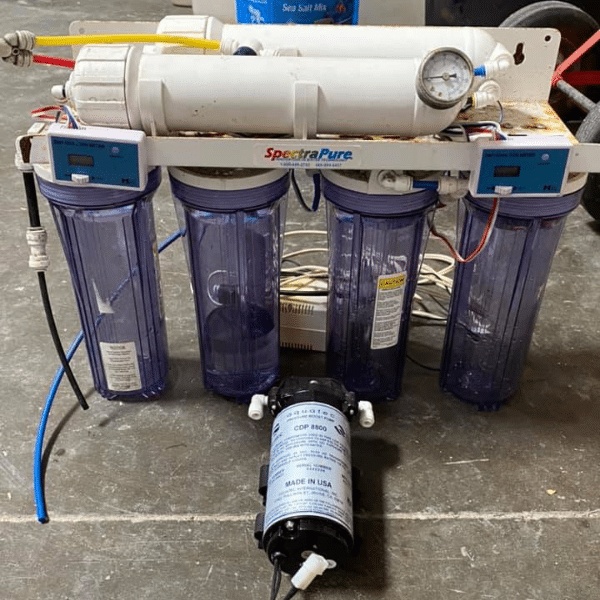
3. Conditioned Tap Water (Last Resort)
If you must use tap water, always treat it with a strong conditioner to remove chlorine and chloramine. But remember, it won’t remove phosphates or silicates, which are the root cause of algae headaches.
What To Do If You Already Used Tap Water
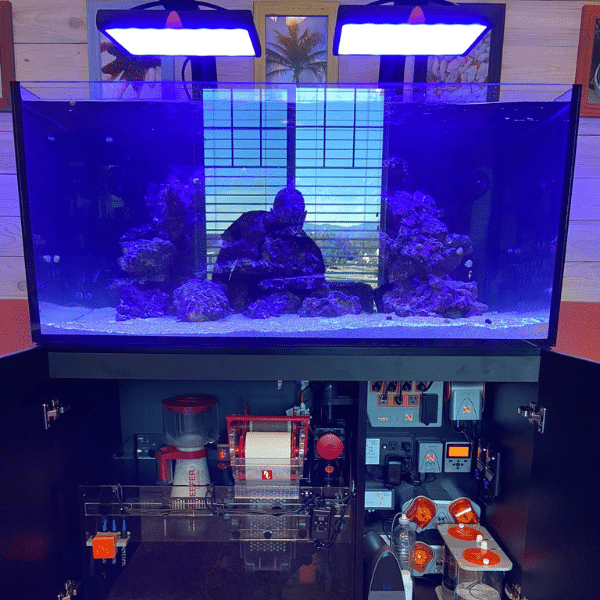
Don’t panic if you’ve already filled your tank with tap water. You’re not alone, and you can recover.
Here’s the path forward:
- Start Testing: Use phosphate and nitrate test kits to see what’s in your water.
- Partial Water Changes: Gradually replace tap water with RODI or distilled water.
- Algae Control: Add phosphate removers like GFO, and use macroalgae in your sump to compete with nuisance growth. Or explore professional algae removal services if it gets out of control.
- Livestock Health Checks: Monitor coral polyp extension and fish behavior closely.
If you’re struggling, this is where professional help saves time. At OCD Reefs, we’ve helped countless local reefers rescue tanks from tap water issues and stabilize them with clean water solutions.
Why Trust OCD Reefs for Guidance
We’ve seen it all in our Salt Lake City shop: tanks overrun with hair algae from high phosphate tap water, stressed corals that perked up the moment we switched the source water, and frustrated hobbyists who almost gave up before finding the right solution.
With over 25 years of combined reef experience, our team can test your water in-store, set you up with custom aquarium installation, or even supply pre-mixed saltwater ready for your tank. That’s the difference between guessing with forums and getting reliable, local support.
Ready to Upgrade Your Reef Water?
If you’re tired of algae battles and unstable water chemistry, it’s time to make the switch. At OCD Reefs, we stock everything from RODI systems to conditioners, and our aquarium maintenance services mean you can enjoy your reef without worrying about what’s in your water. Want to keep your reef thriving? Call us today or contact our team to see how easy it is to upgrade your water quality.Frequently Asked Questions
Yes, you technically can, but it’s not recommended. Cycling relies on creating a stable bacterial colony, and starting with contaminated tap water makes this harder. Nutrients like phosphates and nitrates in tap water fuel nuisance algae right at the start, which slows down the cycle and creates long-term instability. If your goal is a healthy reef with corals and inverts, always cycle with RODI or distilled water. Learn more in our saltwater vs freshwater aquarium guide.
Conditioners such as Prime neutralize chlorine and chloramine, which makes the water less harmful for fish. But here’s the catch: they don’t remove phosphates, silicates, or heavy metals. Those contaminants remain in the water and cause long-term problems like algae blooms and coral stress. Conditioned tap water might work for a freshwater tank or a fish-only saltwater tank, but it’s not safe enough for a reef tank.
Absolutely. Many reefers start with tap water before realizing the issues it creates. The key is transitioning gradually. Perform partial water changes, replacing some of the tap water with RODI each time. Over a few weeks, your system will stabilize. If your tank has developed algae problems, pairing the switch with phosphate removers and good husbandry will speed recovery.
Both are safe, but RODI wins for practicality and long-term reef health. RODI systems filter water at home, providing an endless supply of ultra-pure water. Distilled water is safe and clean, but buying it repeatedly can get expensive, especially for larger tanks. Think of distilled water as a backup or short-term solution, and RODI as the best long-term investment.
Sometimes reefers get lucky. Their local tap water may be low in phosphates or heavy metals, and their tanks look fine for months or even years. But reef systems are sensitive, and conditions often change without warning. The same water supply can shift seasonally, introducing new contaminants. What looks like success with tap water is usually temporary, and long-term results almost always favor RODI.
Household water filters like Brita reduce chlorine and improve taste, but they don’t remove the compounds that cause problems in saltwater tanks. Phosphates, silicates, and heavy metals remain untouched. These filters are designed for drinking water, not reef aquariums. For true reef safety, stick with RODI.
Keep Your Reef Thriving with the Right Start
At the end of the day, your reef’s success starts with what you pour into it. Tap water might look clean, but it carries invisible risks that set your tank up for problems. The safest choice is always RODI or distilled water.
If you’re ready to give your corals and fish the stable environment they deserve, OCD Reefs is here to help with expert advice, high-quality products, and ongoing consultations.
Your reef deserves better than tap water. Let’s build it right from the start.
Related Reads:
- Is Tap Water OK for a Saltwater Tank? - October 9, 2025
- Should I Get Blue or White Light for My Saltwater Aquarium? - September 5, 2025
- Do Saltwater Aquariums Need a Special Filter? Here’s the Truth (and What You Actually Need) - August 4, 2025
